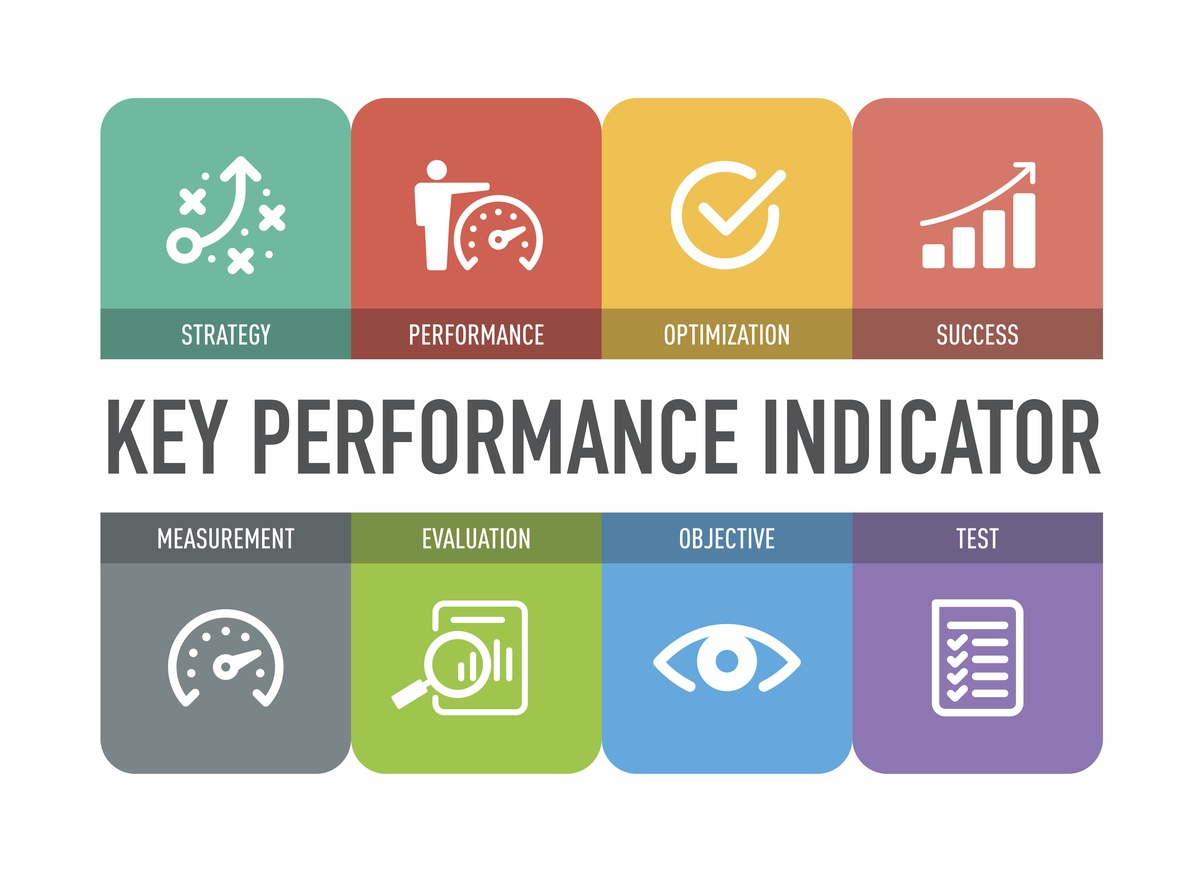When it comes to running an online business, a solid and state-of-the-art digital marketing strategy is rather an obligation than an option. Without a clear marketing vision and appropriate ways to reach your target audience, you may easily fall behind your competitors or struggle to make your business stand out. Therefore, a decent marketing strategy should always be an integral part of any online business as the competition is now fiercer than ever.
Nevertheless – how exactly do you measure the effectiveness of your marketing actions? Since there are so many players, you need to know whether you have reached an estimated number of customers and sold enough to reach the break-even point, or how successful your last marketing campaign on Facebook turned out to be. All these questions can be answered with one term – KPIs (Key Performance Indicators).
These indicators can turn out extremely helpful when speaking about the effectiveness of your marketing actions… and many more. Still, even though KPI is a relatively popular type of measure, in 2016 a survey by Geckoboard proved that almost half of small and medium-sized business owners were not able to identify any KPIs.
Even though KPI is a relatively popular type of measure, in 2016 a survey by Geckoboard proved that almost half of small and medium-sized business owners were not able to identify any KPIs
KPIs have been, however, widely used by large multinationals where this word has been on the lips of every single manager for years. Nevertheless, KPIs also fit into the online market world full of innovative and ambitious entrepreneurs who try to stand out with their brand new and creative ideas. KPIs can be extremely helpful, not only to assess financial results of a company but also to check whether marketing actions taken were accurate, and whether the performance was as expected.
Once you read this article you will know:
- what is KPI meaning,
- how can you use KPIs in marketing,
- what are the best KPI examples for marketing.
What is KPI meaning?
KPI definition
In the simplest terms, KPIs are indicators enabling companies and businesses to check to what extent their strategic goals and plans are being achieved. Using KPIs provides business owners and marketers with knowledge that allows them to monitor the effectiveness of their actions and check the status of ongoing work.

What is more, implementing such indicators lets entrepreneurs significantly reduce all the complex information about business, which results in a smaller amount of key data to analyse. This essence is already enough to provide business owners and marketers with understandable and easy-to-digest results, which are the starting point for drawing conclusions and changing the way entreprises operate.
Peter Drucker once said, “If you can’t measure it, you can’t improve it”. That’s the very essence of KPIs. However, they should not be equated to just a measuring info. These are the key indicators that provide business owners with reliable results presenting the status of ongoing tasks as well as the level of reaching goals.
KPIs will differ between specific companies depending on:
- industry,
- size of the company,
- target audience,
- location of a business,
- development strategy.
Even though there are some generic KPIs, all of the above factors should always be taken into consideration when setting KPI targets in a certain organisation.
If you can’t measure it, you can’t improve it
KPI implementation benefits
Using KPIs comes with a wide range of benefits:
- better prioritization of projects and tasks,
- better decision-making process based on selected and most crucial pieces of information,
- focusing appropriate resources on appropriate actions,
- better motivation for reaching goals,
- a possibility to measure the effectiveness of actions over specific periods of time,
- improving marketing campaigns.
As you can see, KPI implementation can truly make a difference when it comes to reaching business goals and developing a company. KPIs can be used both on financial and non-financial grounds and be implemented in all areas of the business.
How can you use KPIs in marketing?
KPIs are usually associated with measuring an overall business performance. Not many people talk about them in regards to marketing actions, which is a huge mistake as KPIs provide marketers and and business owners with highly valuable information that may enrich their marketing campaigns. And since marketing is the area thanks to which customers find out about the existence of businesses, it has a significant impact on business performance.
Running campaigns in digital marketing world is not a piece of cake. Online businesses constantly outperform each other by adding new features, coming up with innovative ways of reaching their target audience, implementing video content strategy or trying to surprise potential leads in the most memorable manner. It makes it quite troublesome to stand out from a considerable crowd of savvy business owners and marketers. This is what makes adopting right marketing strategy a crucial issue in today’s digitized world.
According to Hubspot, “the most common measurement of success for content marketing programs is total sales.” That’s great but not precise enough, as there are more KPIs that should be taken into account if one wishes to make their marketing campaigns absolutely impeccable.
Since no entrepreneurs wish to lose money on unsuccessful activities, taking KPIs into consideration and using more of them can truly be helpful. If marketers track the right marketing KPIs, they can easily make appropriate and required adjustments to strategy, planning and budget. Otherwise, they may end up making poor choices and not well-thought decisions based on wobbly fundamentals.
What are the best KPI examples for marketing?
As mentioned, there are a lot of KPIs and their usage depends on the specific features of business and the conditions it operates under. However, there is a small set of KPIs which, with little adjustments or not, may be implemented in almost every company. They measure such factors as:
- social media performance,
- organic traffic,
- mobile traffic, etc.
Let’s now scrutinize the importance of three key indicators: Sales Revenue, Customer Lifetime Value and Lead Conversion Rate.
Sales Revenue
Understanding Sales Revenue is crucial when it comes to controlling how effective and convincing your marketing operations are. All marketing campaigns are created with a clear objective – to generate money and leads for companies. It goes without saying that no business owner wishes to spend money on ineffective actions. Checking Sales Revenue after a specific campaign is highly valuable to determine its effectiveness. You get to see, clear as day, whether the campaign should be repeated (in a slightly changed manner), or if you better kick off with something completely different.
Customer Lifetime Value

Source: https://easyonlinebizsolutions.com/marketing/customer-lifetime-value/
Do you know thatacquiring a new customer can cost five times more than retaining an existing customer? Being aware of that you are able to take advantage of it. Instead of focusing your marketing efforts on generating new leads, try rather to reach out to your current customers with a well-tailored,stellar, brand new offer. It will enable you to expand Customer Lifetime Value. If your lead nurturing campaigns turn out to be successful, you have high chances of increasing their value and earning customer loyalty for a long period of time.
Acquiring a new customer can cost five times more than retaining an existing customer.
Landing page conversion rate
Checking whether your attention-grabbing and beautifully crafted (with an assistance of experts in this fields such as Landingi) landing page performs well is one of the most essential KPIs when it comes to marketing actions. If your landing page doesn’t convert, it means it’s useless, as it doesn’t fulfil its primary role. You should check out landing page performance improvement techniques, because effective landing pages are an integral element of every decent marketing strategy.
Learn more about landing page KPIs.
As you can see, KPIs turn out to be extremely helpful in terms of marketing actions and their effectiveness assessment. Even though they were rather created in order to determine whether an organisation reaches its goals, they can also be perfect indicators of successes or failures in regards to your marketing strategy. Once used in marketing, they can significantly improve your marketing campaigns quality and let you outperform the competitors.








